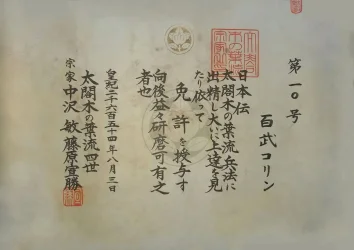For me "master" means more "master copy" than "master-slave". It means someone reached an experience level enough to be qualified to pass on their skills to students under their own direction (i.e. without THEIR senior watching over them teach). In Kukkiwon Taekwondo most people feel this title comes in at 4th Dan, in Korea it doesn't come in specifically until you "graduate" from the "master instructor course" (graduate feels a bit overblown for a week's course, but I guess that's a translated term).
"Under their own direction" is a key term here. But truth be told, it is quite common for lower ranked black belts and ever color belts to direct other students with little to no directions. Then critique and correction are brought into the teaching in a more group setting.
I do feel conflicted about the master instructor course as the defining Kukkiwon requirement. Yes, it requires the person to be 4th Dan but it does nothing to verify actual quality or proof of efficacy. I have been through it twice and have attended the program four times (to support my students going through). There is not a ton of consistency in the program IMHO. It is simply a 'pay to promote' tool, a stop gap if you will.
The term Grandmaster in my opinion comes generally from the feeling that if a Master is capable of having their own students (like a father is capable of having their own children), then a Grandmaster has had students that got to Master level themselves (like a grandfather). About 7th/8th/9th Dan is normal for that in Taekwondo. And again, I feel no weirdness about it.
This is a great definition. I do strongly feel time should be a Hard qualifier, but the physical requirements are well defined.
I think if other titles are acceptable for a certain level of proficiency (e.g. Dr, Pastor, etc) then it's the same here, it's only that I think the specific word "master" triggers some people with race connotations of the word. For me it doesn't trigger me (nor most of my UK-based peers), so I think it's fine.
While I agree with this, I also feel it should never be an assumed 'automatic' requirement. By your above definition, I am a GM, but I am seldom addressed as such, seldom even Master, and I am fine with that. As I am sure you know, Koreans hold 'title' to a higher order than most, so when I am with a group of GM's, decorum is always used.
I have a PhD (in engineering). I seldom use or mention it, never use it as a salutation, and about the only place you may see it written is in LinkedIn or in qualification letters. The latter of which I consider quite ambiguous and meaningless to identify a persons real abilities.
I am from the Sough, so I have more direct experience with this. Certainly, the term 'Master' does not hold the same negative connotations it used to, simply because it is not as prevalent, but it can still come up. Not so much as a black/white thing nowadays, but more from the 'entitled' or 'equal' mindset that is prevalent these days. It is harder to help people reconcile the "I want it and I want it now" mindset that is so counter-productive to the way most all things (including the MA's) are learned.
I fully recognize that the term master/slave can sound negative to the uninformed, but in my engineering/process control world, it is one of the most common and applicable phrases out there. People just need to recognize it for what it is, and not try to add a bunch of excess and incorrect ideas to it.

